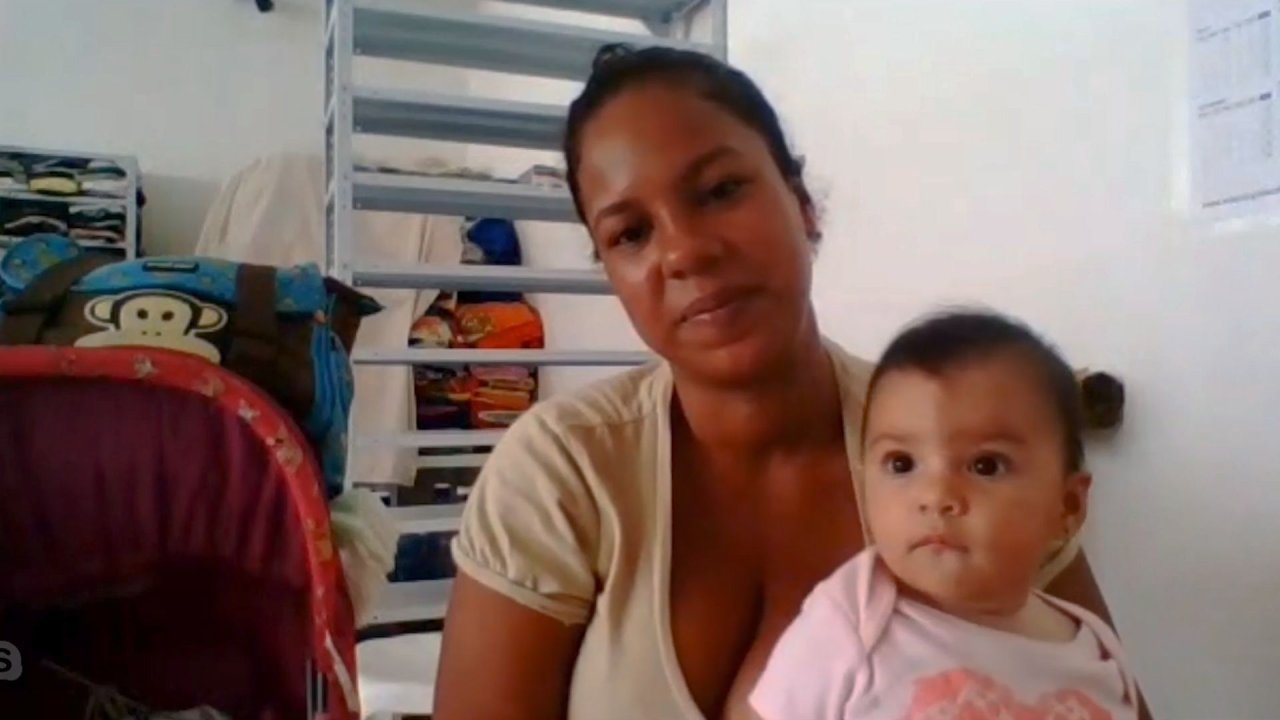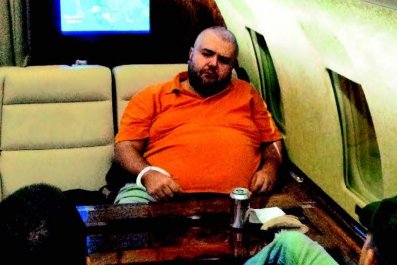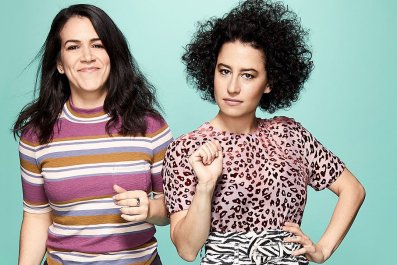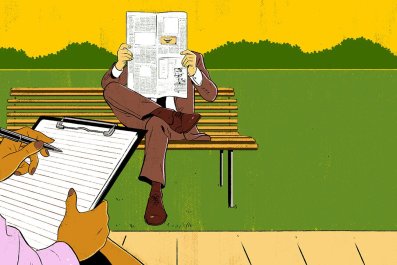
As the crisis in Venezuela deepens, millions of people have made desperate journeys to escape hyperinflation, hunger, crime, diseases and death.
In 2018, Ana Carina Palacio was one of them. After her husband was killed in an accident, she set off, while pregnant, along with her young son. She sought help in Colombia from the International Organization for Migration, which is associated with the United Nations, to obtain a transit card and enter legally into Colombia. She is staying at a temporary assistance center for migrants in Villa del Rosario as she seeks housing, employment and caretakers for her now 6-month-old daughter and 2-year-old son.
This is her story, in her own words (and edited for clarity), as told to Newsweek's Jessica Kwong in Spanish, over a Skype interview from Colombia.
When I left Venezuela for Colombia, it was the first time I had gone outside of my country. I had never even left my state, or Maracay, before. I did not want to leave. I had to.
I worked independently, styling nails and eyebrows, but soon there were no jobs for me to do. No one had work—life became a matter of finding enough food to survive.
I would wake up and have to get in line to be able to eat. We had vegetables for breakfast, lunch and dinner because there was no meat. We had to be in lines every day, and there was less and less food until there was nothing.
My son would get sick, and doctors did not even want to see him because there was no medicine. Or it was so expensive I could not afford it. I decided to leave because we could not keep living there, hungry.
I fled Venezuela alone with my young son and daughter, whom I was pregnant with.
It was difficult. I got a panic attack on the bus, not knowing if authorities in Colombia were going to let me in. Thankfully, I had a transit card, but I was so nervous I felt like I was going to die.
Thank God we did not have a problem entering. It was a powerful moment, and I had conflicting feelings. I was glad I was able to make it without a man by my side. Yet I was nervous because I didn't know anyone or what to do if someone approached me with bad intentions.
What happened is an angel appeared, a man who is a psychologist and offered to help me until I could get situated in Colombia. I got here without a cent or any extra clothes. I'm staying at a temporary assistance center for migrants, and it doesn't solve my housing problem, but it's a marvelous place and I feel tranquil. There is enough food, and they pay great attention to us as if we are all brothers and sisters.
Some people have been welcoming and others have not, because here in Colombia there are many people and they have different ways of thinking. Some extend a hand and say, "Come here. Eat here. What do you need? Did you shower?" There are other people who say, "No, I don't support this, I don't want Venezuelans."
When Hugo Chávez was president of Venezuela, I was a young girl focusing on my studies and did not follow politics. Of course, when Nicolás Maduro took power, I did not support him because of many things. There were no jobs, and imagine having to be in lines day after day after day, just to have a chance to eat. Now that Juan Guaidó [the oppostion leader recognized as interim president by the U.S. and several other countries] has taken over, I hope he makes a change for my country and that it truly comes from the heart.
Los flujos de venezolanos continúan constantes, alcanzando ahora la cifra de 3.4 millones https://t.co/wISii2rCBJ@UNmigration @Refugees
— OIM América del Sur (@OIMSuramerica) February 22, 2019
I'm not sure if I will ever return to my country. If the situation changes, it's possible, but if I find a good job here and get used to it, I may not want to.
Did I ever think about immigrating to the United States? We all have that thought, but I saw it as impossible for me. Why? Because it cost me so much to come to Colombia, I think I would die trying to reach the United States. Maybe of happiness!
I tell my older child, my son, to be strong and that this is all temporary and will pass. I tell him to study hard because I want him to have what I do not have, that he have dreams, that he go to the United States, that my daughter go to the United States. And that they bring me one day.











